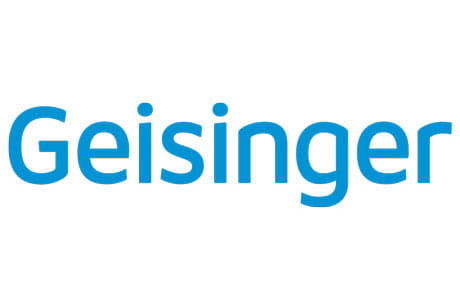Geisinger research identifies genetic risk factor for stroke
Cysteine altering NOTCH3 gene variant, present in 1 in 300 people, identified as stroke risk factor in elderly patients
DANVILLE, Pa. – A team of Geisinger researchers has identified a common genetic variant as a risk factor for stroke, especially in patients older than 65.
Cerebral small vessel disease (SVD) causes about a quarter of ischemic strokes worldwide and is the most common cause of vascular dementia. SVD can manifest as lesions on the brain, which typically appear on brain scan images. SVD is commonly associated with aging and hypertension, but a minority of cases are caused by cysteine altering variants in the NOTCH3 gene.
Approximately 1 in 300 people have this type of gene variant. A rare hereditary condition known as cerebral autosomal dominant arteriopathy with subcortical infarcts and leukoencephalopathy, or CADASIL, which is caused by this gene variant, has been associated with SVD and an increased risk of stroke.
In their study, published in Stroke, researchers evaluated a set of health records, including imaging and genomic sequencing data, of more than 300 Geisinger patients, of which 118 exhibited a NOTCH3 variant. Of this group, 12.6% had a history of stroke, compared with 4.9% of those in a control group. The risk of stroke was significantly higher in those older than 65, and patients exhibited a higher number of white matter lesions on the brain. Although all 118 patients in the study group had a NOTCH3 genetic variant, the specific variant that causes CADASIL was rarely seen.
Given the high population frequency of NOTCH3 variants, the number of individuals who may be at higher risk of SVD and stroke as a result of a NOTCH3 variant is significant, the research team wrote. The study indicates that most individuals with a NOTCH3 variant will develop NOTCH3-associated SVD after the age of 65.
“Stroke is a complex multifactorial condition,” said Vida Abedi, Ph.D., a scientist in the department of molecular and functional genomics at Geisinger and a co-author of the study. “Dissecting its risk factors and identifying ways to improve patient outcomes is a crucial part of improving patient care.”
“This study represents a novel and powerful approach to studying the genetic basis of neurologic disease,” said Ramin Zand, M.D., a vascular neurologist and clinician-scientist at Geisinger and co-author of the study. “Geisinger’s unique resources, its electronic health records and focus on precision medicine allows us to leverage this data to provide better care for all of our patients.”
To recognize the signs of a stroke, people should remember the acronym BE FAST:
• Balance: Does the person show signs of sudden loss of balance?
• Eyes: Are they experiencing sudden vision trouble like blurred, double or loss of vision?
• Face: Does the person’s face look uneven when they’re asked to smile?
• Arms: Is there weakness in one or both arms?
• Speech: Does the person have trouble speaking or seem confused?
• Time: Call 9-1-1 if you notice any of these signs or symptoms.
Geisinger’s nationally recognized Acute Stroke Program includes 24/7 stroke care at all of our hospitals, two Comprehensive Stroke Centers designated by The Joint Commission and the American Heart Association at Geisinger Medical Center in Danville and Geisinger Wyoming Valley Medical Center in Wilkes-Barre, Primary Stroke Center hospitals, and research-proven care that helps people recover from stroke with fewer disabilities. To learn more, visit geisinger.org/stroke.
About Geisinger
Geisinger is among the nation’s leading providers of value-based care, serving 1.2 million people in urban and rural communities across Pennsylvania. Founded in 1915 by philanthropist Abigail Geisinger, the non-profit system generates $10 billion in annual revenues across 134 care sites - including 10 hospital campuses, and Geisinger Health Plan, with 600,000 members in commercial and government plans. The Geisinger College of Health Sciences educates more than 5,000 medical professionals annually and conducts more than 1,400 clinical research studies. With 26,000 employees, including 1,600 employed physicians, Geisinger is among Pennsylvania’s largest employers with an estimated economic impact of $14 billion to the state’s economy. On March 31, 2024, Geisinger became the first member of Risant Health, a new nonprofit charitable organization created to expand and accelerate value-based care across the country. Learn more at geisinger.org or connect with us on Facebook, Instagram, LinkedIn and X.

For media inquiries:
Ashley Andyshak Hayes
Marketing Strategist
Marketing & Communications
570-271-8081
arandyshakhayes@geisinger.edu
